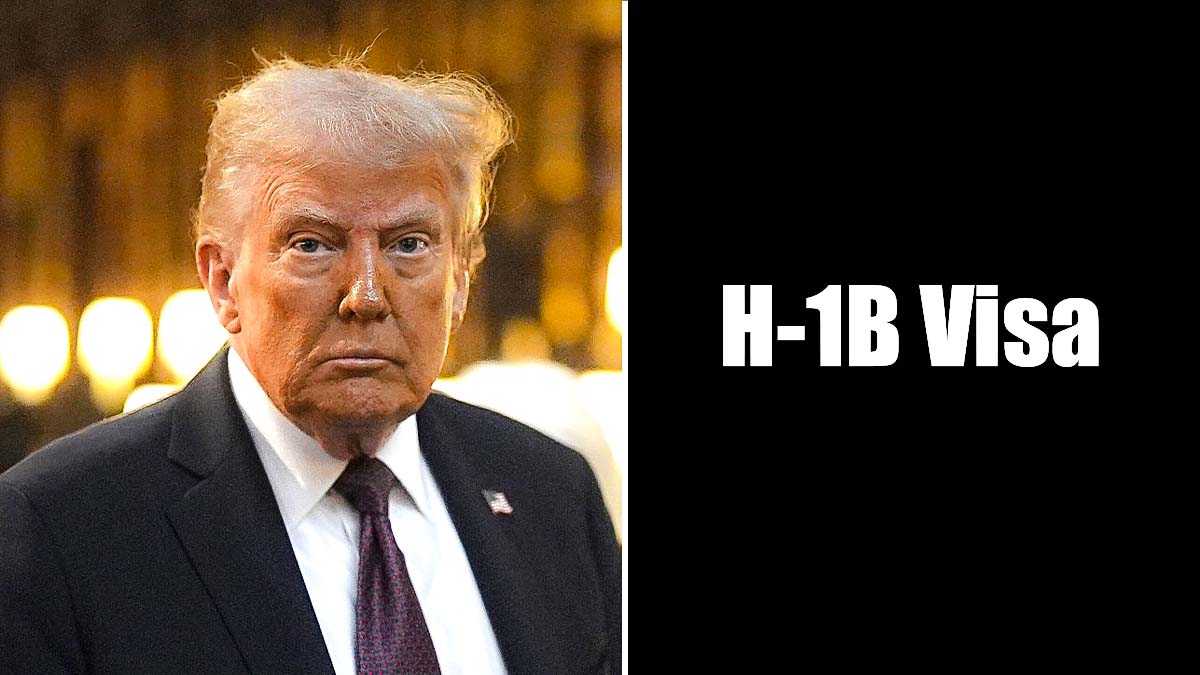In a bold stroke aimed at reclaiming jobs for Americans, President Donald J. Trump signed a sweeping proclamation yesterday, imposing a staggering $100,000 annual fee on H-1B visa applications. The move, effective September 21, targets the high-skilled worker program that tech giants have long relied on to import talent from abroad.
🚨 BREAKING: By stroke of pen, President Trump raises the H-1B Visa fee from $1,000 to *$100,000,* and directs the Secretary of Labor to revise the wage rules to make it much harder for companies to hire foreigners in replacement of American workers.
Massive win. pic.twitter.com/Gl9uybH3tw
— Eric Daugherty (@EricLDaugh) September 19, 2025
Trump, flanked by Commerce Secretary Howard Lutnick in the Oval Office, declared it a “game-changer” for U.S. workers, insisting, “The tech industry will be very happy – they’re going to love this.” But as Silicon Valley reels and legal challenges loom, the question hangs: Is this America First policy a triumph or a self-inflicted wound to innovation?
The H-1B program, created in 1990, allows U.S. companies to hire foreign professionals in specialty occupations like software engineering and data science, requiring at least a bachelor’s degree. Capped at 85,000 visas annually (65,000 standard plus 20,000 for advanced degrees), it’s a lifeline for the tech sector amid a chronic talent shortage.
Yet, critics, including Trump, argue it’s been abused: Companies undercut American wages by hiring overseas workers for as low as $60,000 – far below the $100,000+ average for U.S. tech pros – and even force laid-off Americans to train their replacements under NDAs. The White House fact sheet cites stark examples: One firm got 5,189 H-1B approvals in fiscal 2025 while axing 16,000 U.S. jobs; another slashed 27,000 American positions since 2022 despite 25,075 visas.
“This isn’t about closing doors – it’s about protecting our doors,” Lutnick boomed during the signing, directing the Labor Secretary to overhaul wage levels and ensure H-1Bs don’t displace Americans. The fee – a 200-fold hike from the prior $460-$2,500 range – applies to new hires, renewals, and transfers, potentially totaling $300,000 over a three-year visa. It’s non-refundable, even for denials, and hits employers hardest, though immigrants foot indirect costs via lower salaries. Trump sweetened the pot with a “Gold Card” visa: For $1 million, wealthy foreigners get a fast-track to citizenship, pitched as a revenue booster for “exceptional” contributors.
The fallout is seismic. Tech behemoths, who snagged over 20,000 H-1Bs in early 2025 alone (Amazon: 12,000+; Microsoft and Meta: 5,000+ each), are scrambling. Microsoft urgently messaged H-1B and H-4 staff abroad: Return to the U.S. by September 21 or risk complications; those stateside must stay put. Amazon and others echoed the panic, warning of disrupted projects. Shares of Indian IT firms like TCS and Infosys – which dominate 70% of H-1Bs, mostly from India – tumbled 3-5% in after-hours trading. Startups, already cash-strapped, may fold under the burden, accelerating a shift to automation, offshoring, or local hiring drives.
Pro-Trump voices hail it as overdue reckoning. “No more training foreigners to steal our jobs – train Americans!” Lutnick urged, aligning with the administration’s “Buy American, Hire American” ethos. Supporters on X (formerly Twitter) cheered: “Finally, putting U.S. grads first – this curbs the wage suppression that’s gutted STEM careers.” It could funnel billions into U.S. training programs, bolstering national security by growing domestic talent pools.
Detractors cry foul. Illinois Rep. Raja Krishnamoorthi blasted it as “reckless,” warning it severs America’s edge against rivals like China by repelling global brains to Canada or the UK. Immigration experts question the executive overreach: Does the president have unilateral power, or is Congress needed? Tech lobbies like the Chamber of Commerce decry stifled innovation; one X user quipped, “Trump just handed our AI lead to Beijing.” For the 700,000+ H-1B holders (72% Indian, 12% Chinese), it’s personal: Renewals could spike living costs, curbing job hops and green-card dreams.
As dawn breaks on this seismic shift, Wall Street buzzes with bets on court battles – likely headed to the Supreme Court. Trump’s gamble embodies his unyielding vision: Prioritize citizens, damn the disruptions. But in a hyper-connected economy, will fortifying borders fortify prosperity, or fracture it? For now, American workers cheer from the heartland, while coders worldwide hit pause. The code for U.S. innovation just got a pricey rewrite.
